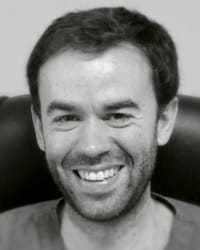STARSurg: Building the future of surgical research
12 Nov 2014
Ed Fitzgerald

Yet now, more than ever, the focus on evidence based medicine in modern surgical practice means that new medical graduates must be comfortable in applying scientific methods and approaches to medical research. The ability to formulate research questions and critically appraise studies in the medical and scientific literature are GMC requirements for the ‘doctor as a scholar and a scientist’.
What I didn’t know at the time was that I wasn’t alone in my struggle to engage with what can be one of the most challenging yet rewarding aspects of surgery. Many students and junior doctors frequently report difficulties in engaging with high-impact extracurricular research and audit projects.
Roll the clock forward, and I was reflecting on these issues last year with a group of medical students and colleagues when we decided to develop a novel solution. Building on the now well-established trainee collaborative model in surgery could a student-led group develop a study protocol for other medical students across the country to follow? Could this provide practical, hands-on experience of research and audit skills that would demystify clinical research and inspire a new generation of clinician-scientists? The Student Audit and Research in Surgery (STARSurg) network was born.
STARSurg empowers students to participate in high quality academic surgical projects, forming links with supervising junior doctors and consultants. Through this, students contribute data to national studies while gaining an understanding of clinical academia, audit and research methodology, and ethical considerations. In line with other collaborative groups, all contributors are listed as PubMed-citable collaborators on the resulting publications.
Getting this off the ground wasn’t easy, and wouldn’t have happened without outstanding teamwork from those involved. A significant challenge has been convincing many clinicians that meaningful projects can be conducted successfully with this collaborative approach, and that students themselves can successfully lead this. Our first project, the first national study into post-operative non-steroidal anti-inflammatory drugs on adverse events after gastrointestinal surgery was a great success as is our second project looking at defining surgical complications in the overweight which is just finishing.
With concerns around dwindling numbers of medical academics in the NHS, and with the increasing complexity of medical science that informs our understanding of diseases and treatments, it is more important than ever that future surgeons have the right skills to understand and contribute.
For students and surgeons wanting to learn more about STARSurg please register your interest on the STARSurg website and follow us on Twitter. For postgraduate students, visit us at this year’s national surgical research collaborative meeting in December.
This national, multi-centre, student-led collaborative research and audit project has been a world-first. The learning curve has been steep, but the enthusiasm with which students from across the UK and Ireland have taken to it suggests that with the right mentoring and support, surgical research has a bright future ahead.
Follow Ed Fitzgerald, General Surgery Registrar, Barnet & Chase Farm Hospitals and Clinical Advisor, Lifebox Foundation @DrEdFitzgerald
